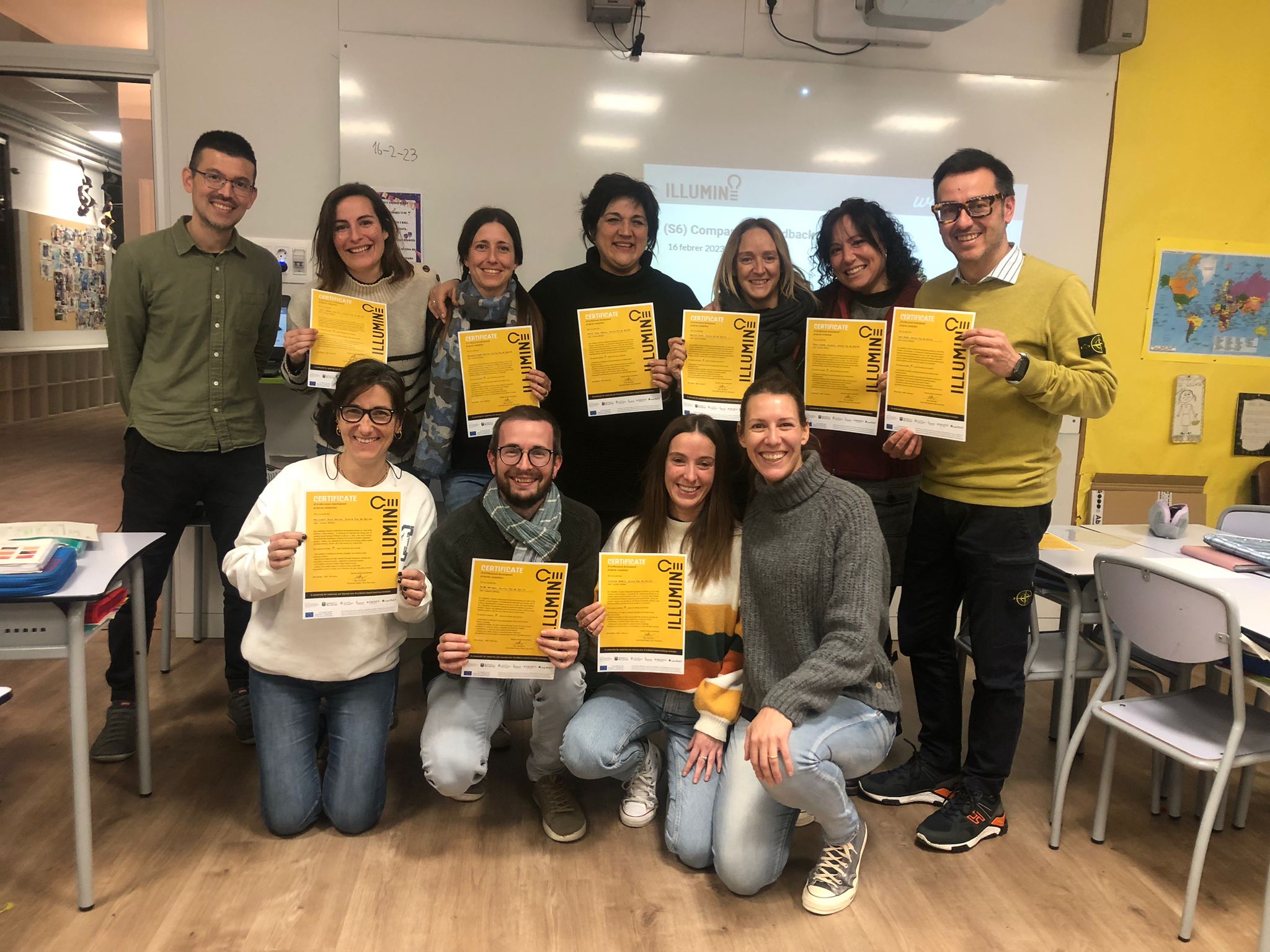On 16 February 2023, a group of primary school teachers from Escola Pia Sarrià in Barcelona completed a 20-hour Illumine Professional Development Programme. Participating teachers were introduced to evidence-based teaching and learning strategies and designed their own research projects. These projects involved conducting research lessons – lessons in which teachers tested one or more of the evidence-based strategies with their students. Results of the research lessons were shared with peers and prepared as case study reports. Summaries of the research lessons completed are below:
Small study on the implementation of neurocognitive techniques in the specialties (Petit estudi sobre la implementació de tècniques de neuroconeixement a les especialitats). The research lessons were run in Music and English classes and involved brain breaks and retrieval practice.
In both subjects we wanted to achieve the content to be worked on more effectively. Therefore, we aimed to objectively verify this fact. We set a learning goal, and students were given a series of activities alternating with brain breaks and retrieval activities before a final evaluation activity was given. Students' oral feedback was, for the brain break activities, that they were fun and unexpected. In relation to the implementation, we found prior planning of the sessions to be the most difficult, not the fact of putting it into practice. A priori there is a mental resistance on the part of the teachers to change the methodologies, there is a lack of resources to apply it in our day to day life and finally, ignorance of the strategies. It means an investment in preparation time, which is expensive for us at the moment, but we are sure that we can create a base of activities for each of the two subjects that will facilitate implementation and normalization in our day to day life.
Use of the apostrophe (Ús de l'apòstrof) - a research lesson involving distributed practice and brain breaks.
When we started the research lesson, what we hoped to see was if, by applying retrieval practice to work on spelling content, the students are able to learn and better apply the rules discussed and thus be able to obtain better results in written expressions and dictations. On the other hand, we also wanted to check if, by using various types of directed 'brain breaks', students are able to improve the quality of attention when working on this specific aspect of the language. We wanted to verify this using the apostrophe 'L rule' as content, applying 4 learning activities in 4 different sessions. Having carried out our project, we have come to the conclusion that it is a highly recommended practice, as the results of the children have improved in 18/16% of the cases and the average of the results has risen by approximately 0,5 points out of 4. However, we note the fact of using directed breaks, although at first it created a certain nervousness and excitement for them (because they were not used to it). Afterwards, both the students and us, the teachers, were able to see the advantages.
Dictation (dictat) - a research lesson involving distributed practice and brain breaks.
The activity we prepared was a dictation focused on 10 keywords. After analyzing the results, we have observed, at a general level, that there has been a significant improvement in results and students have expressed that they liked working in this way. Although it is a suitable way of working, we are concerned about the investment of time required to carry out this type of activity. We would like to be able to transfer it to other subjects, increase the number of activities and to further verify the effectiveness of the method.
Natural environment (medi natural) - a research lesson involving distributed and retrieval practices
We used three groups of distributed practice classes and a control group. The groups that did this practice outperformed the group that did not apply it in learning the content. The big difference was that in the control group there were still some students who confused some part of the male and female apparatus. It was shown that they could not retain as much information as the other groups, as we could see that all three groups were able to retain the different parts through the game. We hoped to make it better and easier to learn by applying this practice, but it should also be said that it would be good to apply it to other content in other different areas to see and check if this always happens or if there is some other condition that we have not had into account to change the results or not.
